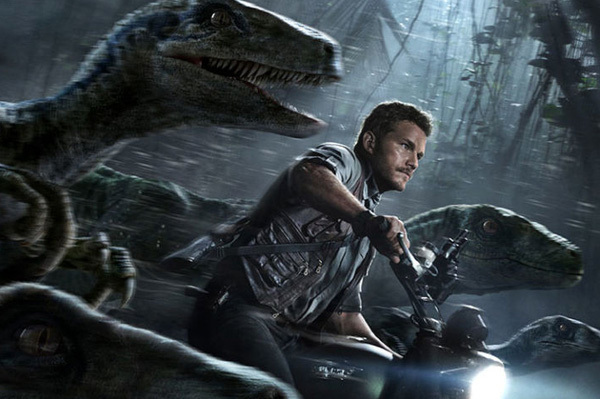Alex Reviews Jurassic World - The Least Awful Sequel
So... much... nostalgia...

Rating: ★★★
As Jurassic Worlds hype machine kicked into full gear over the last month and everyone ran about talking about keeping expectations in check, I couldnt help but feel a bit bemused. Were people actually expecting this to be any good?
Now I'm not going to mince words on this - I adore the original film. Steven Spielbergs sublime exploration of chaos theory/how cool T-Rexs are is one of the best blockbusters ever produced, a perfect mixture of spectate (including effects that inexplicably still hold up) and incredibly well written characters. What turns me off to revisiting Jurassic Park in anything other than its original form are the sequels; The Lost World is a couple of cool sequences surrounded by thuddingly bland victims, while Jurassic Park III is so clumsily put together it barely qualifies as a narrative work.
With that poor hit rate, how can you approach the movie formerly known as Juarassic Park IV with anything other than cautious ambivalence? Even with Spielberg taking a more active role and Safety Not Guaranteed's Colin Trevorrow at the helm, its still a sequel to a movie that has thus far has appeared to be unsequelable. The best it could reasonably hope for is being described as the least awful sequel to a all-time classic.
And that really is the only way to describe the Jurassic World. Oh, you can frame it (like much of the mainstream press has) as the "best" sequel, but let's not kid ourselves; while a fine slice of summer fun, Jurassic World never comes close to matching the original. It is, at its heart, an inoffensive follow-on that honours Park's legacy without tarnishing it, but is only going to be well-regarded because of the company it keeps.
Refreshingly, the film is under no illusions of how awful its predecessors are, wiping The Lost World and III from continuity almost entirely (all that rubbish about another island doesn't get a look in). Many of those films' integral elements are even raised here as fresh concepts - dino-on-dino action, military involvement, an Aviary escape - and they're invariably achieved better, actually getting tied into the narrative. Sweetest of all, the only direct reference to the third film is a massive f**k you that rights one of that movie's more controversial moments.
The general idea behind World is so logical it's bizarre it took four movies to realise it; the park is now open, with an average attendance of 21,000 and new hybrid attraction set to be unveiled. You can probably guess where things are going from here, even with the added flavour of Star-Lord training raptors and Wilson Fisk plotting to use the creatures for warfare, but the conflicts are all deftly seeded that each step of the story keeps your attention. And, as you'd expect, having things go to hell in an active park believed to be safe is a great amping of tension, allowing for more widespread panic, even if the park's visitors only ever pop up when the plot requires them to.
What's more interesting, however, is how Trevorrow uses the expansion of the concept to run with various themes from the first film, primarily corporate involvement in science and the ethics behind the un-extinction of these animals. This is where the return of B. D. Wong as Dr. Wu becomes more than just a cameo and some of the callbacks to the original (more on that later) become purposeful; Irrfan Khan's owner at first seems to be embodying John Hammond's ideal, actually quoting "spare no expense", but when the big pile of sh*t hits the fan he's revealed as financially minded as the rest of World's higher ups.
There's also ample commentary on the nature of escalation in sequels, with the film almost admitting the studio-mandated decision in its conception and trying to show how a creator's fingerprints can shine through. Regrettably, like last month's Tomorrowland, the film engages in a few too many of the traits it's criticising to be a proper meta commentary, but it gets props for at least recognising the innate irony of its commercialist story (something I feared would be ignored entirely).
Those problems aside, all of these elements being brought together make Jurassic World feel like a direct follow-on to Park, rather than just another dinosaur adventure that happens to share a title.
Click next for the second half of the review.